Construction managers serve as intermediaries between contracting parties, managing all aspects of construction projects and keeping them on schedule and under budget. To become a construction manager, you’ll need at least five years of experience in the field and show proficiency in project management and organization. Working as a Construction Manager requires someone who understands technical blueprints, manages budgets, identifies potential problems before they arise, and oversees every part of the building process. In addition, this job requires someone with high levels of attention to detail as well as excellent communication skills to work effectively with team members and contractors. Working as a Construction Manager also requires someone comfortable working outdoors in all weather conditions. You will spend most of your time on construction sites overseeing various projects. While the job does not require any specific educational background or degree, it requires in-depth knowledge about building codes and regulations and project management principles.
Construction Manager Resume Example and Writing Guide

Download This Construction Manager Resume as PDF
Construction Engineer Resume Example
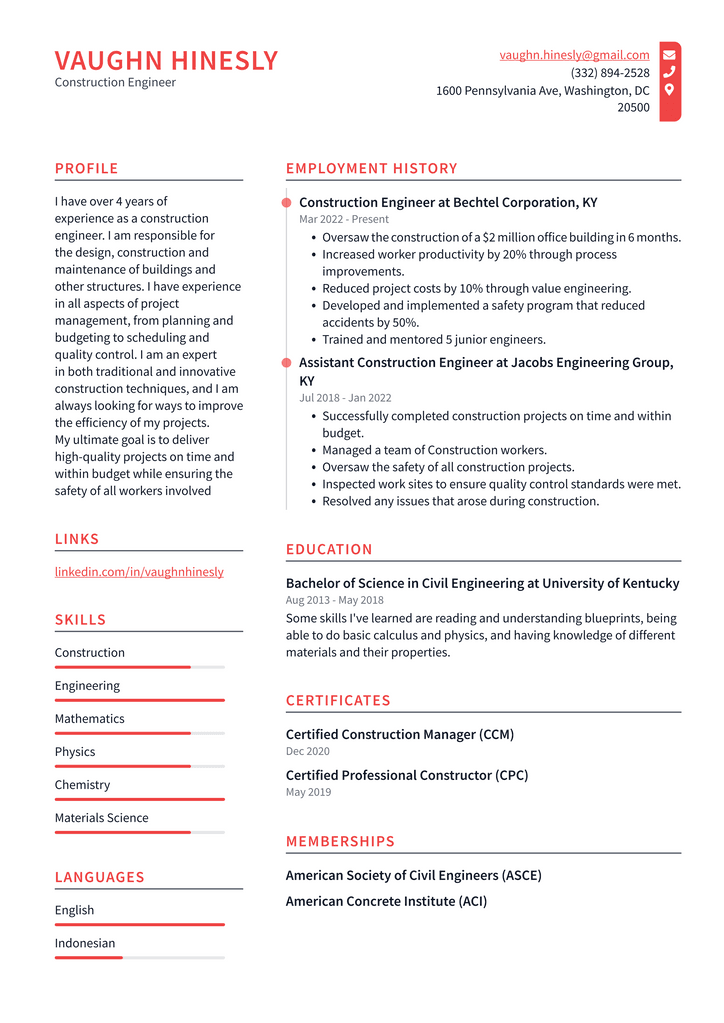
Download This Construction Engineer Resume as PDF
Construction Estimator Resume Example
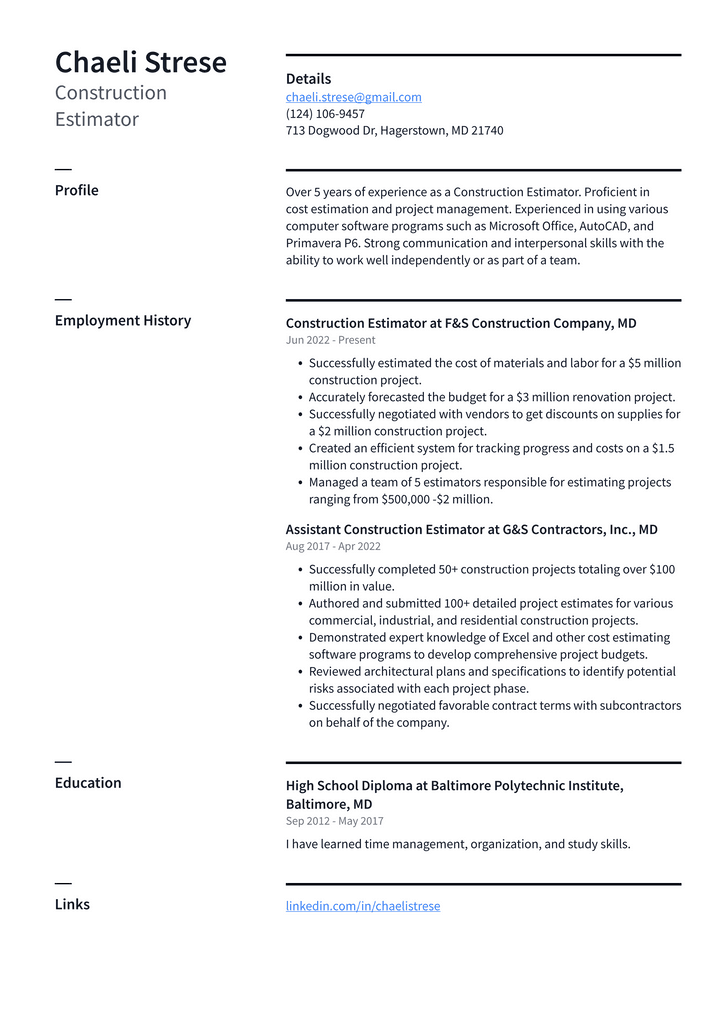
Download This Construction Estimator Resume as PDF
Construction Superintendent Resume Example
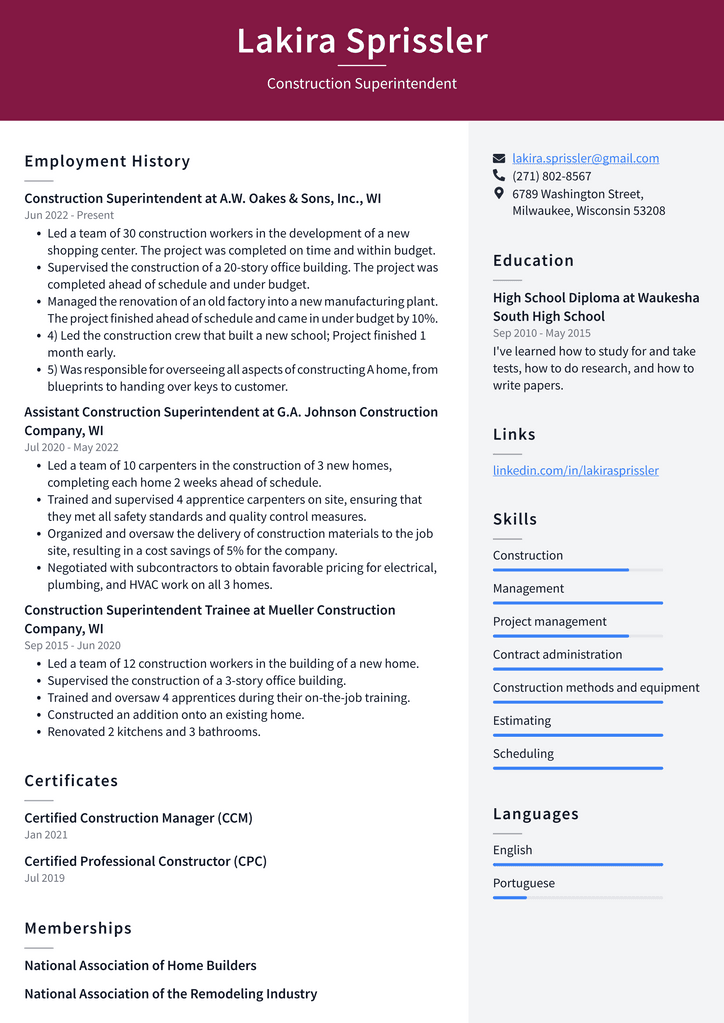
Download This Construction Superintendent Resume as PDF
Construction Laborer Resume Example
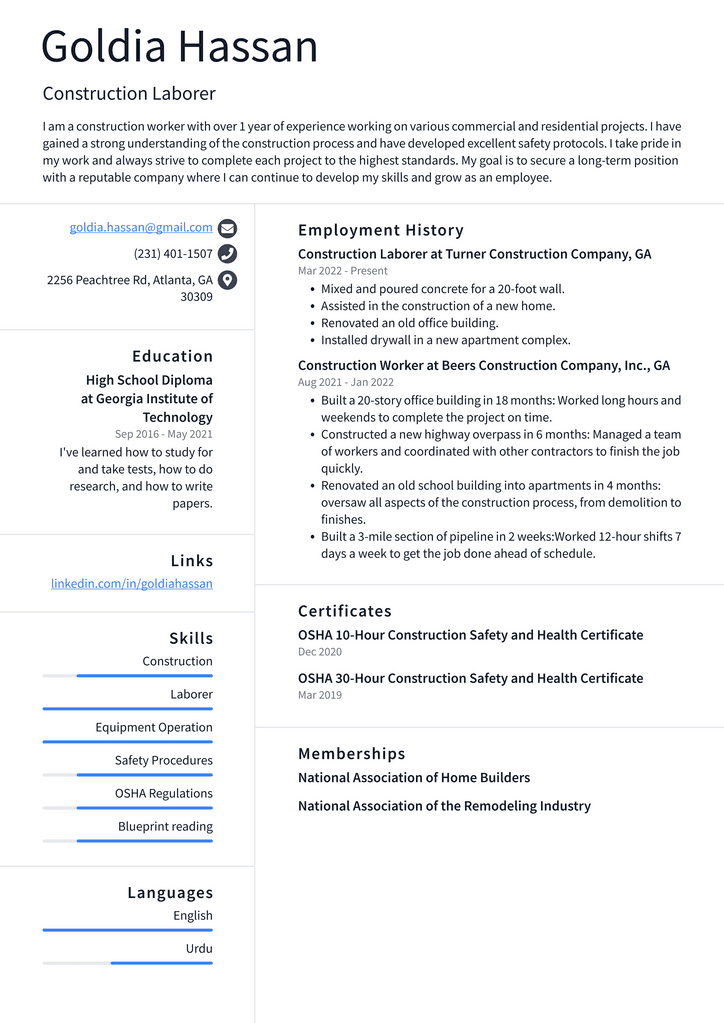
Download This Construction Laborer Resume as PDF
Construction Project Manager Resume Example
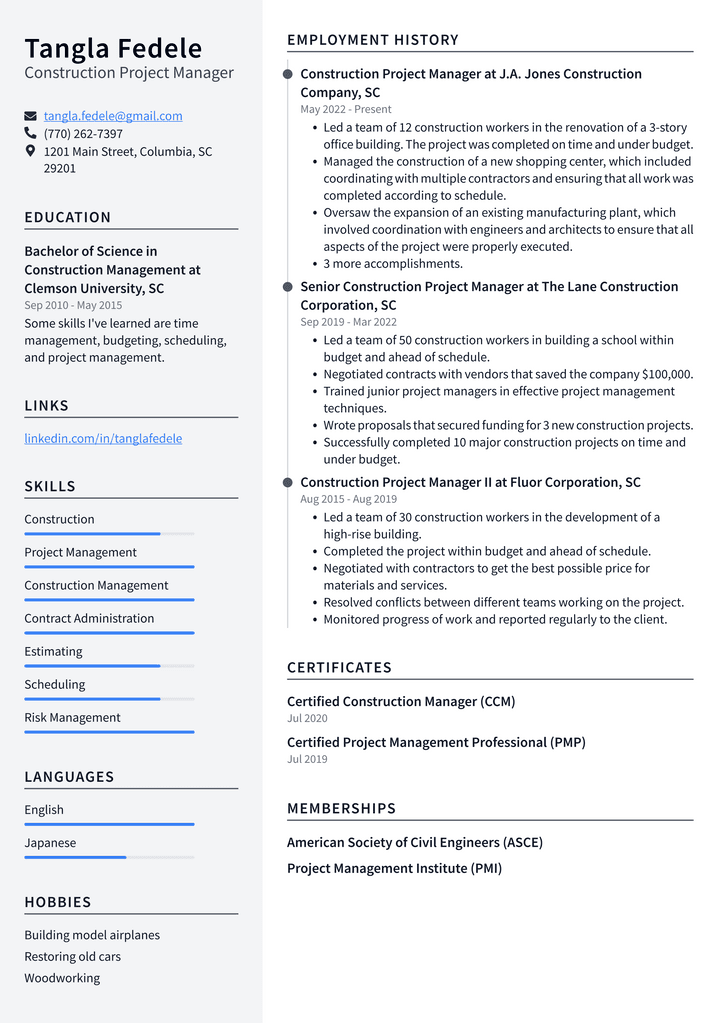
Download This Construction Project Manager Resume as PDF
Construction Superintendent Resume Example
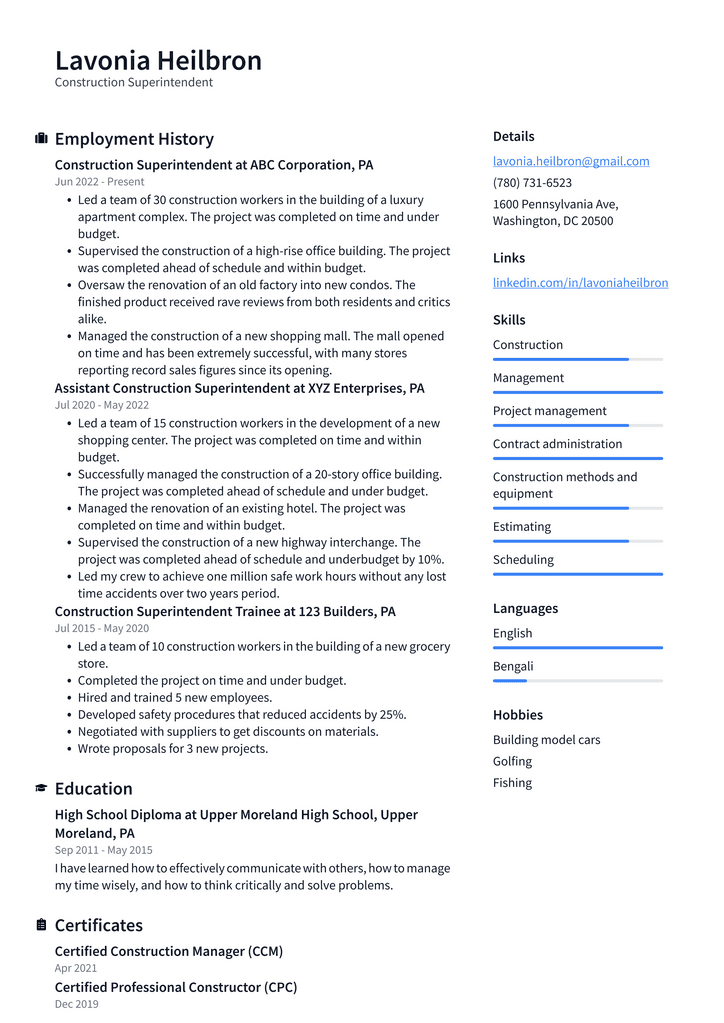
Download This Construction Superintendent Resume as PDF
Write an action-packed construction manager resume
To ensure your construction manager resume stands out, you’ll want to write an action-packed, results-driven resume designed to get noticed. You can do this by including numbers on your resume that prove how effective you are at your job. For example, if you managed a project that cost $10 million, you could write that managing project from start to finish “saved the company $2 million.” You can even include a “before-and-after” format detailing what the construction site looked like before you began managing the project and what it looked like once it was completed. You can also include your general education and work experience on your resume and any courses you’ve taken that relate to construction management. Of course, your education and any certificates or licenses you’ve earned are also essential. Finally, ensure your resume is easy to read, clean, and error-free.
Summarize your skills and experience
Your construction manager resume should detail your skills and experience—including your educational background, work experience, work history, and specialized skills and knowledge. In your construction manager resume, you can include the names of the companies you’ve worked for, the position you held, the years you worked there, and your salary. Your resume should also include any special certifications or licenses you own and any additional skills you have that may be relevant to the job. For example, highlight your skills in communication, organization, project management, and attention to detail. You can also include any specialized skills that relate to construction management. These skills may have knowledge of building codes and regulations, electrical engineering, blueprints, architectural drawings, or building materials.
List your most important qualifications
As a construction manager, you should highlight your qualifications and specialized knowledge in your resume related to building codes, project management, and construction management. These are the qualifications hiring managers are likely looking for, so ensure to include them in your resume. If you have any experience working with specific types of building materials or on certain types of projects, you can also include them on your resume. Some crucial qualifications on your construction manager resume include your education, experience, and specialized knowledge in construction, engineering, architectural drafting, and building codes. If you have experience working with a specific type of project or with a particular kind of building material, you can also include that on your resume.
Mention any certifications you have
If you have any certifications or special designations related to construction management, you can include them on your resume. For example, if you’re currently working in construction management and have experience managing commercial construction projects, you can mention that in your resume. If you have experience managing residential construction projects, you can also include that on your resume. If you have experience working with specific building materials, you can also include that on your resume. Finally, if you have experience working with a particular type of project or building material, you can also include that on your resume.
Add a professional profile and skills section
A professional profile and skills section is a great place to expand your qualifications, certifications, and specialized knowledge. You can include that information in the skills section at the end of your resume. In this section, you can detail the skills and abilities most relevant to the job, such as your experience working with certain types of building materials and blueprints. You can also include any specialized skills related to construction management, such as knowledge of building codes and regulations, electrical engineering, blueprints, architectural drawings, and building materials.
Conclusion
Your construction manager resume is the first impression hiring managers will have of you, so it must be perfect. To ensure it catches hiring managers’ attention, you will want to write an action-packed resume that includes numbers that prove how effective you are at your job. In your resume, you can include your general education and work experience, as well as any courses related to construction management. You can also include any special certifications or designations you have, as well as any specialized skills and knowledge that are the most relevant to the job, such as your experience working with certain types of building materials or blueprints.